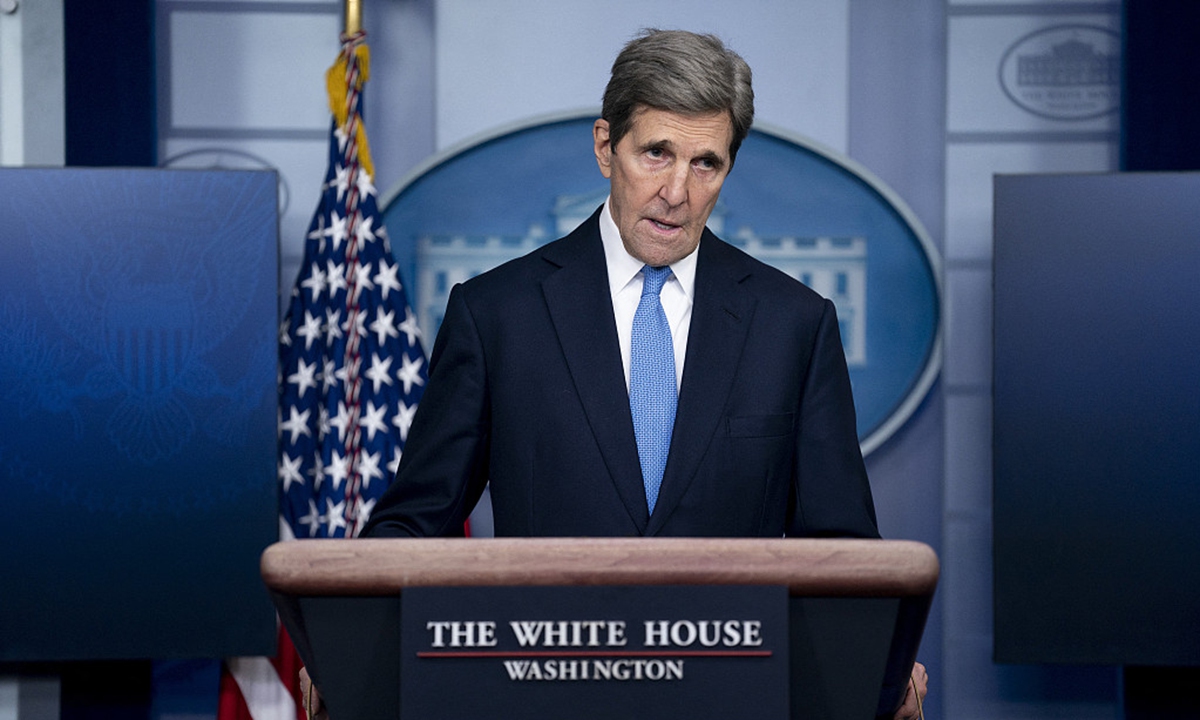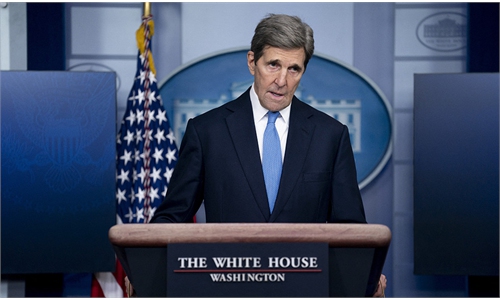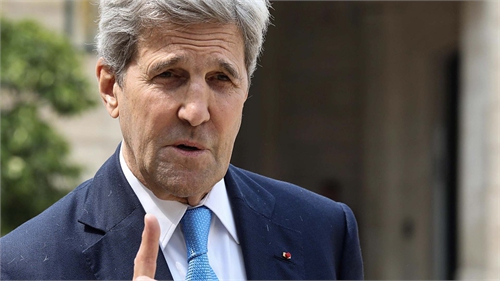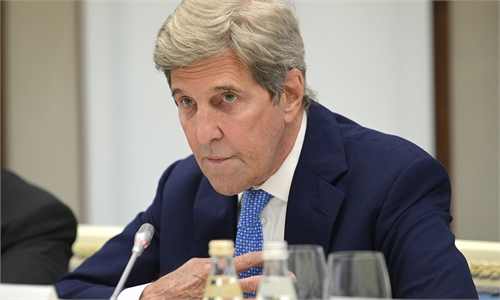
John Kerry VCG
US Special Presidential Envoy for Climate John Kerry is scheduled to visit China from August 31 to September 3. As the Biden administration's climate envoy, at the top of his agenda are discussions about China-US cooperation to tackle climate change and the upcoming UN Climate Change Conference (COP 26) in November. Noticeably, Kerry is a Democratic Party heavyweight and diplomatic veteran. The possibility that he may take advantage of the trip to talk about other issues that the Biden administration direly needs China's cooperation cannot be ruled out.When it comes to the climate change issue, China's policy is coherent while the US' is not. The past decades have seen different attitudes and policies on climate change from both Democratic-led and Republican-led governments. The US under Trump, who once described climate change as a "hoax," withdrew from the Paris climate agreement. But the Biden administration returned the US to the Paris accord, and is ambitious to build back better as a global leader on climate change. The US' incoherent policies mean that any agreement reached with Washington will be hard to deliver. This is one of China's concerns when talking about climate issues with the US.
Kerry's trip comes at the invitation of the Chinese side. This shows China is willing to have climate talks with the US in good faith. But over the past few decades, we can see that greatly affected by domestic politics, the US is hard to maintain consistency in its climate policies and has behaved poorly in fulfilling its commitments. Like a hooligan, Washington has tricked other countries to assume various binding responsibilities and obligations on climate change. Yet it has not acted to do so itself.
Washington aims to take advantage of the climate change issue to slow down China's economic development. It wants to make China assume more responsibilities with the reduction of emissions. It's fair to say Kerry doesn't shy away from this. In fact, The Wall Street Journal reported on Thursday that Kerry will press Chinese leaders to declare a moratorium on financing international coal-fired projects, citing people familiar with the matter. The climate envoy in July called on China to step up on emissions cuts and to do more. But if Washington talks to Beijing in a coercive and condescending manner, China will never buy it.
China has a clear-cut goal to reach carbon neutrality by 2060. It will phase down coal use to realize this goal. But the pace should be decided by China itself. Washington wants Beijing to assume more responsibilities in tackling climate change. In the meantime, Beijing is more concerned with what contributions Washington will make, and whether or not the US can actually adopt coherent climate policies. Will Washington make good on financial commitments to developing countries struggling with climate change and cut its own greenhouse gas emissions?
One prevailing view holds that climate cooperation might open the door for a new round of "ping-pong diplomacy." Although we hope such goodwill to materialize, the regrettable reality is that the domestic atmosphere in America toward China is presently quite toxic. While climate change is an issue that can be coordinated amid the current complicated bilateral relationship, it cannot so readily reverse the US' hostile policies toward China.
After Kerry's first visit to China in April, the Wall Street Journal published an editorial titled "John Kerry's Climate Kowtow." This shows that some extreme conservative forces in the US want to lead all China-related issues to the direction of confrontation with China. Many forces within the US are trying to turn the climate issue into a topic to smear and suppress China's development, as they did with the pandemic. With such a public opinion trend in the US, China-US cooperation on the climate change conundrums might eventually become a tool for Washington to add pressure on Beijing.
According to a Reuters report from April 2021, US officials have said cooperation with Beijing on climate would not "water down US efforts to hold China accountable on other issues." This included what it says economic and human rights abuses by Beijing. Obviously, Washington wants to suppress China on the one hand, and on the other hand, it wants to make China compromise on the climate issue, among other areas.
Officials in the Biden administration have often mentioned speaking to China "from a position of strength." This is a typical mentality of US political elites when dealing with China and other countries. But from the US debacle in Afghanistan, people could clearly feel that the US' national strength is declining. Therefore, it would be ridiculous if the US insists on interacting with China "from a position of strength." US political elites should learn to face reality, instead of engaging in politics in an illusionary world.
During Chinese State Councilor and Foreign Minister Wang Yi's phone conversation with US Secretary of State Antony Blinken on Sunday, Wang said that, "Dialogue is better than confrontation, and cooperation is better than conflict." China will consider how to engage with the US based on its attitude toward China. Our message is very clear: We are prepared to cooperate at any time, but we are also ready if the US still wants to wreak havoc on China.
The article was compiled based on an interview with Li Haidong, professor at the Institute of International Relations of the China Foreign Affairs University. opinion@globaltimes.com.cn



